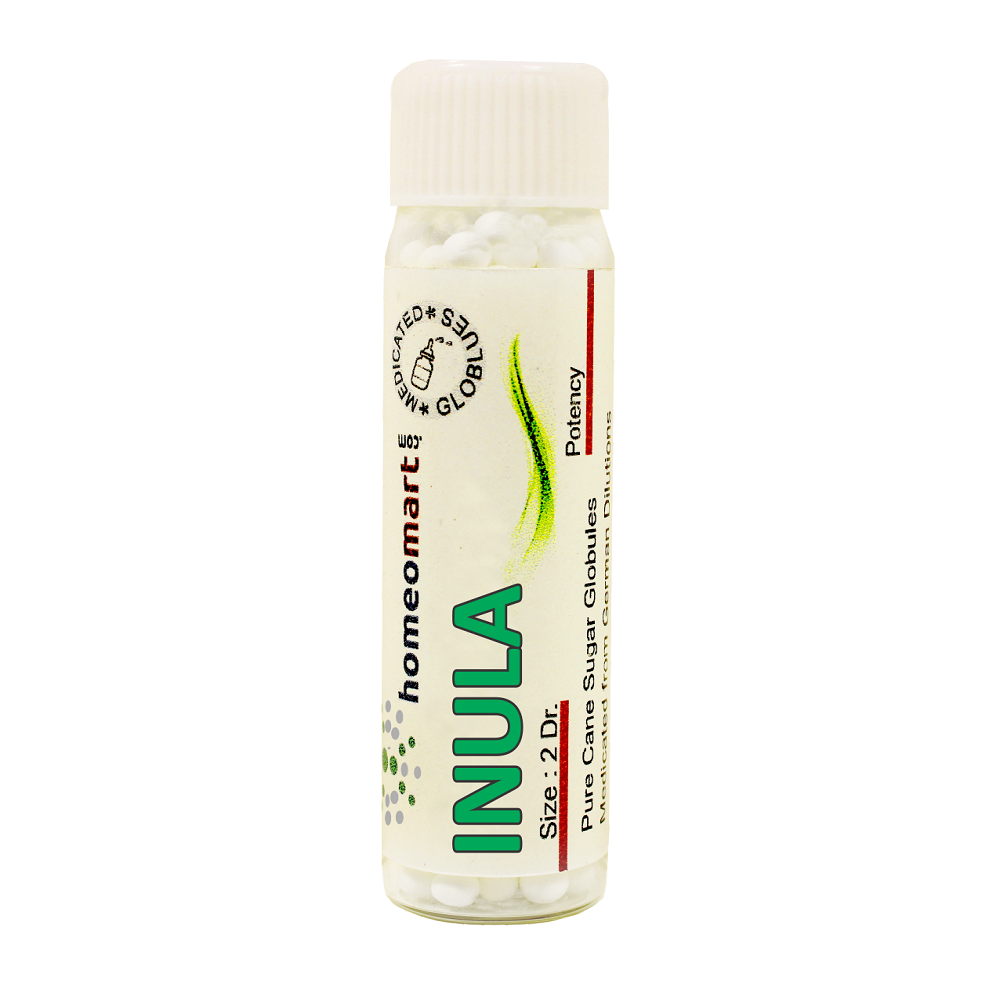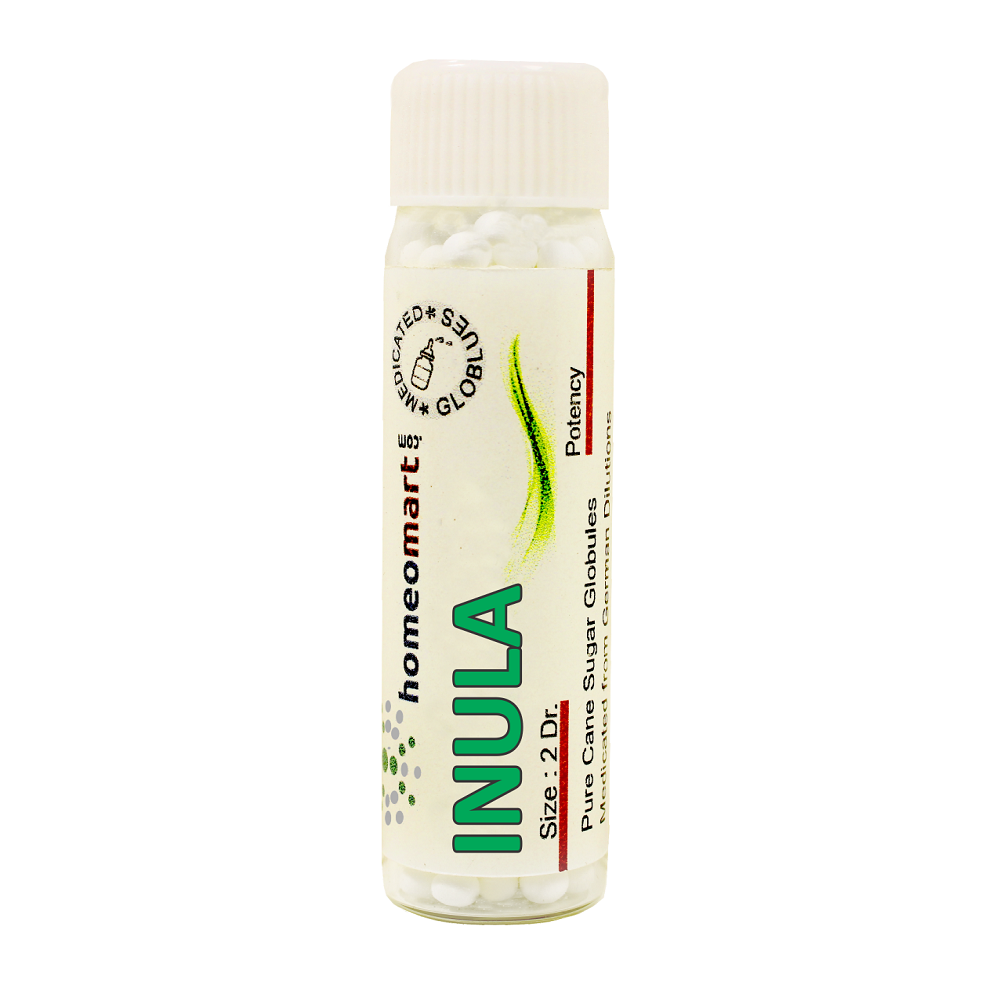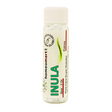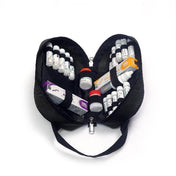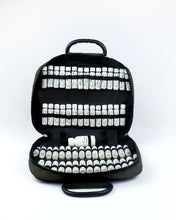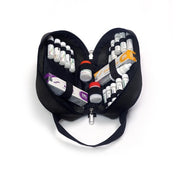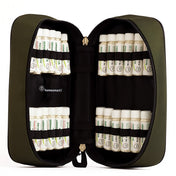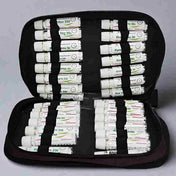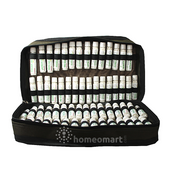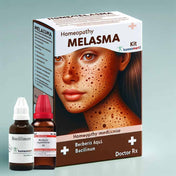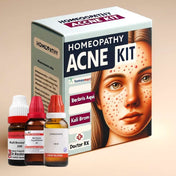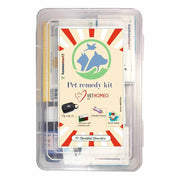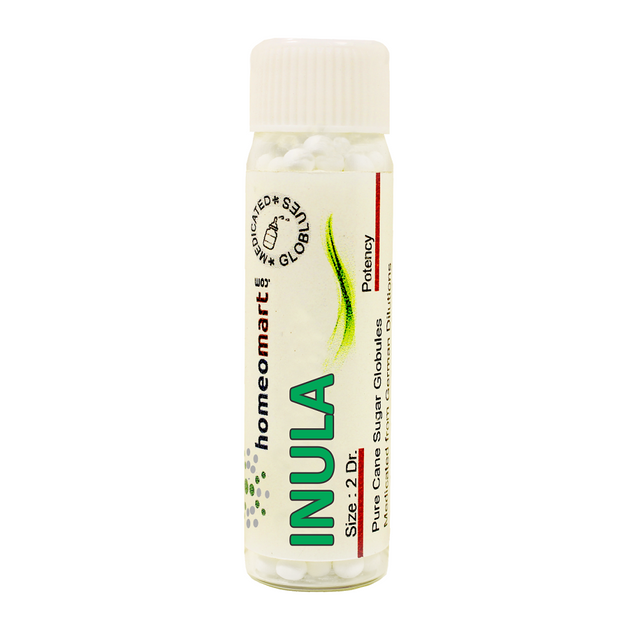Inula Homeopathy 2 Dram Pills 6C, 30C, 200C, 1M
Inula Homeopathy 2 Dram Pills 6C, 30C, 200C, 1M - 2 Dram / 6C is backordered and will ship as soon as it is back in stock.
Couldn't load pickup availability
Description
Description
About Inula Homeopathic Medicated Pills
Inula is primarily utilized for treating respiratory disorders. It notably affects mucous membranes, providing relief from chest pain and alleviating dry cough, particularly worsened at night.
Indications:
- Respiratory disorders, including chest pains and dry coughing.
- Throbbing pains in the head, along with a sensation of pressure in the temples and forehead.
- In females, it helps treat menstrual disorders, especially premature menses with pain in the genital region, an increased urge to defecate, and backache.
Ingredients:
- Active ingredients: Inula homeopathy Dilution of desired potency
- Inactive ingredients: Sucrose
Key Benefits:
- Backed by Traditional Practices: Medicated with authentic homeopathy dilutions of desired potency conforming to HPI standards. Globules are made using hand succussion ensuring medicament is properly dispersed through the globules.
- Natural and Safe Formulation: These pills are designed to work in harmony with your body's natural processes, offering a gentle yet effective treatment option without the risk of side effects commonly associated with conventional medication.
- Easy and Convenient to Use: These pills are easy to take, with no complex dosing schedules. Their small size and portability make them a perfect health companion for people on the go, ensuring that keeping up with your health regime is hassle-free.
- Dosage: Adult and children 2 years of age and older: Dissolve 4 pills under the tongue 3 times a day until relieved or as directed by a physician. Size: 2 dram Glass Vials
Why Glass containers for Homeopathy Medicine?
The use of glass containers is recommended due to concerns about the reactivity of plastic containers. Plastics can leach chemicals into stored substances, and the U.S. FDA has classified plastics as "Indirect Additives" because they can seep into contained substances. Additionally, homeopathy tinctures often use alcohol, which is a good solvent. When medicines are exposed to plastics, the alcohol can dissolve some of the chemicals in the plastic, potentially distorting the structure and action of the active ingredients. Glass containers do not pose such problems, making them a preferable option.

